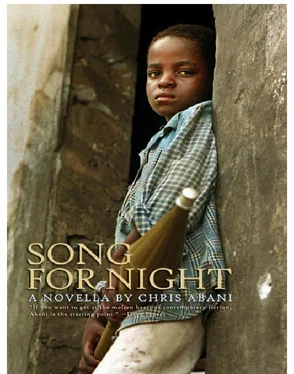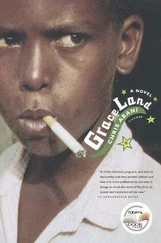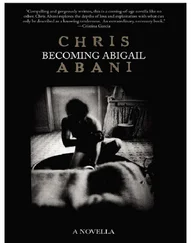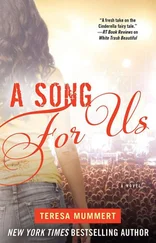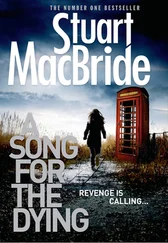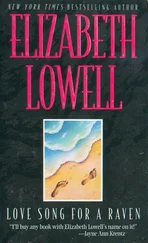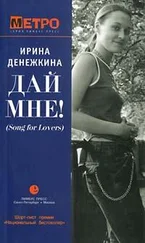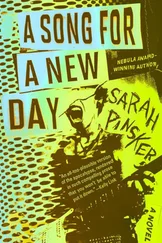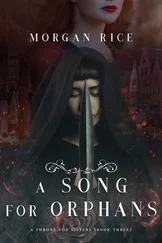Mercy Is a Palm Turning Out from the Heart
This woman’s eyes are cold and hard and dark like onyx and I wake straight into that gaze. One that reveals nothing and flinches from nothing; if I am death, she is ready. If I mean no harm, she will ignore me; I hope. My gesture is one of supplication and if she understands it, she doesn’t show it. Her gaze takes in my torn clothes, my haggard face, and the gun, and also the scapular that has come loose. I can’t make out what she is thinking.
I hesitate, letting her gaze wander over me as I scan the bank for any signs of other people. She appears to be alone. I return my eyes to her and search her for weapons. All she has is a long pole with a makeshift metal hook on the end. A bag stands by her feet and I see it is filling up with loot. Rings, watches, compacts, a handbag, some good shoes, jewelry, and with a shudder I realize what she is doing, or was doing before she happened upon me. She uses the hook to pull bodies onto the shore and robs them of their valuables. It is despicable what she is doing, I think, and wonder if I drifted into the bank or whether she pulled the canoe in with the intent of robbing me. Ghoul. At least when I rob, I rob the living, I think, feeling superior to her. But if she is ashamed by her profession, nothing in her face reveals it.
It is a bright day and my broken watch reveals nothing about the time. I can only guess it is about midday. I thank whatever gods or goddesses watched over me while I slept. There is a road behind the woman and I can’t tell if this is the one from yesterday or if I have drifted back to the bank with the roadblock. Nothing looks familiar.
The woman gives me one final look, makes the sign of the cross, and goes back to fishing for corpses as though she has dismissed me, as though with that token sign she has somehow rendered me invisible.
“Mother, where am I?” I try to signal, using the generic term for respect. But either she can’t see me anymore, doesn’t understand, or doesn’t want to. I get out of the canoe and walk toward her. She pauses and turns to look at me; the sun is directly in my face and I am squinting. She hesitates, then spits, almost shouting, “Tufia!” the old word for banishing spirits or bad things. I smile and something in my face softens her, and for a minute her eyes are pure tenderness and the look unsettles me, brings back memories of the first woman I raped, a woman her age, and I stumble back confused, wondering if she is real or if she is a ghost, an apparition drawn by the river goddess mami-wata from my guilt; to punish me. As I stagger back from her, my mind staggers back in time, but fragments are all I stumble over.
John Wayne was yelling at me. There were villagers running in panic. There were houses and huts burning. Also granaries. Bullets from indiscriminate guns cut down plants, animals, and people. The platoon was screaming. Ijeoma, the only girl among the attackers, stood to one side, watching, too afraid perhaps to cry. But something moved behind her eyes. John Wayne and I were standing in a room. A woman huddled under the bed. Why do they do that? I thought. Hiding under a bed never saved anyone. John Wayne pulled her out and threw her on the bed. Ripping her clothes off, he ordered me to rape her. I hesitated.
“You are the only one who hasn’t raped anyone yet!” he barked at me.
I wanted to ask him what this skirmish, this fight, this destruction of an innocent village had to do with our mission to defuse mines, but I knew better. I looked at the woman. My hesitation puzzled her and she stopped crying. John Wayne was angry at my insubordination and he pointed his gun at my head.
“Rape or die,” he said, and I knew he meant it. As I dropped my pants and climbed onto the woman, I wondered how it was that I had an erection. Some part of me was enjoying it and that perhaps hurt me the most. I entered the woman and strangely she smiled. I moved, and as much as I wanted to pretend, I couldn’t lie, I enjoyed it. The woman’s eyes were tender, as if all she saw was a boy lost. She stroked my hair tenderly, whispering as I sobbed: “It’s all right son, it’s all right. Better the ones like you live.” When I came, John Wayne laughed and put two rounds into the woman’s head, spraying my face with her blood. The woman died with that look of absolute tenderness in her eyes.
Ijeoma found me. She knew, but she had too much grace to say anything. That night, in the rubble of that village, while the others roasted a goat, she washed the blood from my face.
“You have the taste now,” she said.
I nodded. I knew what she meant. I was thirteen, armed and lost in a war with the taste for rape.
“I will save you,” she said.
And she did. She became my girlfriend and that night and every night after that, whenever we raided a town or a village, while the others were raping the women and sometimes the men, Ijeoma and I made desperate love, crying as we came, but we did it to make sure that amongst all that horror, there was still love. That it wouldn’t die here, in this place.
I return to the moment of that woman’s look and the look this woman is giving me here at the riverbank. I turn from her and run through the thick patch of tall grass on the bank, across the road, and make for the forest. I can still feel her eyes on me. I decide to rest and move closer to the town that must be nearby under the cover of darkness.
I climb a tree and doze.
Dreaming Is Hands Held in Prayer over the Nose
Maybe this is true. That there are some of us who give love and some of us who take love; and that those who give can’t help giving just as those who take can’t help taking; and maybe this is what holds the world in balance.
I dream my hate comes back and she is a woman made of night dancing in the middle of a lake I have seen only in Grandfather’s stories and she has claws of fire and breath of ice and her laughter, as she turns in dance, is a band tight as a vice across my heart choking life from it, and as I am gasping for breath all I can think is, What a thing of beauty she is, what a thing . Then a light breaks in the east, over the lake, and approaches, an orb smaller than a star but no less bright. I see it is Ijeoma and she opens her arms and the woman made of my hate fills her, slowly extinguishing her light, and she falls from the sky, and as she falls, her light fading, the band around my chest loosens and I see her smile so sadly yet so full of love.
I wake to darkness. Breathing heavily I fumble for a cigarette and stick one in my mouth. In a fleeting kind of way, I wonder how come this pack never seems to run out, but then a deeper thought takes hold.
I need to find that town and my platoon.
I want to say a prayer for Ijeoma, but I feel silly. It is only a dream. I shake it off and head back to the road. In the dark it looks like it might lead to the underworld.
Shit.
Town Is Hands Making Boxes in the Air
A minnow skirting through weeds in a pool, a plane skims trees that ripple like a dense Afro. I pause and listen. From the engine pitch I can tell it isn’t a bomber, probably a Red Cross or reconnaissance plane. Down the dark road, in the distance, the lights of a town beckon and I follow.
The market, built around a central square, is alive even this late. People move back and forth. Night markets are a common feature of this war — there is no nighttime bombing or strafing. I stop by a telephone booth, gleaming white and chrome. It is growing out of a pile of baskets that houses angry chickens. There is no receiver and it most likely hasn’t worked since the war started. An interloper, it is regarded suspiciously by the sheep grazing on the rubbish spewed by the market: tin cans, paper, cellophane, fruit peels, rotten yams. The road across the market is a dirt track, mined with potholes. As I make my way through the throng of people shopping, or looking to steal, scents chase after me: goats, chickens, open sewers, muddy earth, dry thatch, rotting fruit, and vegetables.
Читать дальше
